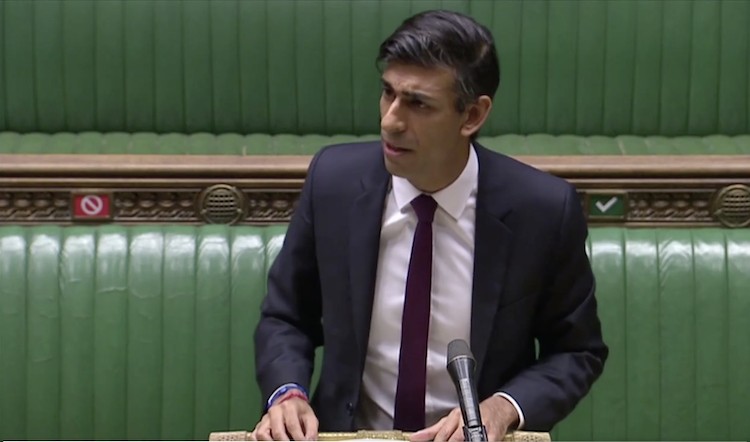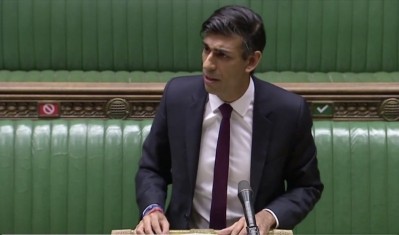Chancellor Rishi Sunak unveils support for jobs and businesses

Speaking in the House of Commons on Thursday (24 September) Sunak said that the plan needed to strike a balance between managing the virus and protecting the jobs with the economy to undergo a more “permanent adjustment.”
Under the new Job Support Scheme, which starts on 1 November and lasts for six months, employees must work at least a third of their normal hours and be paid for that work, as normal, by their employer. For the hours not worked, the government and the employer will each pay one third of their equivalent salary.
Sunak said that as well as protecting jobs this winter the Government must help businesses with cash flow. He introduced a ‘Pay As You Grow’ scheme for businesses that have taken on Bounce Back Loans.
This means loans can now be extended from six to ten years, businesses who are struggling can choose to make interest-only payments and any business in trouble can apply to suspend repayments altogether for up to six months.
For the hospitality sector Sunak also confirmed that VAT rates remain at 5% until 31 March 2021.
Reduced demand
“Many businesses are operating safely and viably, but they now face uncertainty and reduced demand over the winter months,” Sunak said.
“The government will directly support the wages of people in work giving businesses who face depressed demand the option of keeping employees in a job on shorter hours rather than making them redundant.”
Concern was raised that the level of support was not enough to help the food and drink sector. This followed concerns that have already been raised that restrictions placed on the hospitality sector could have a major impact on food manufacturers.
Food & Drink Federation chief executive, Ian Wright CBE, said the Chancellor needed to do more to help businesses.
“The decision to introduce the Jobs Support Scheme and to extend the VAT cut for hospitality are welcome from the government but simply do not go far enough,” he said.
“The requirement for staff to be working part-time to be eligible for support will not be enough to sustain hospitality businesses and their food and drink manufacturing suppliers – the squeezed middle - through a difficult autumn and winter where pubs, bars, and restaurants will have significantly reduced custom.”
He added that only by continuing with the targeted furlough scheme, while the current restrictions remain, would the country avoid mass long-term unemployment and the decimation of a sector that could otherwise support economic recovery.
Engage
“We urge the UK Government to engage with those industries most impacted about what more can be done to support those food and drink businesses most affected by the restrictions,” Wright added.
Emma McClarkin, chief executive of the British Beer & Pub Association, agreed that the Government plans did not go far enough.
“Following the additional restrictions announced earlier this week and their devastating impact on the already precarious situation our sector is in, we were really hoping for a strong package of support today. Some elements of the Chancellor’s plan today are welcome, but do not go nearly far enough to save the thousands of pubs and jobs that we have highlighted are at serious risk,” she said.
She added that brewers would also be heavily hit by the Governments restrictions on pub openings.
“As brewing businesses are also greatly impacted by the curfew and the tighter restrictions pubs now face, they need more support too. With no direct support for them in today's announcement, it is imperative that a beer duty cut is top of the list for the Chancellor at the next Budget, which would greatly help wet led pubs too,” she said.
Tom Ironside, director of Business & Regulation at the British Retail Consortium, welcomed the support scheme and VAT reduction for cafes and food-to-go.
“Retail is on a delicate path to recovery, but the looming threat to this remains the £8bn business rates cliff-edge from April 2021. Retailers need certainty and the Chancellor must take action and bring down the business rates burden in order to avoid unnecessary job losses and shop closures,” he said.

















